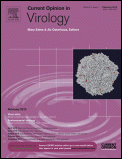
Current Opinion in Virology
Scope & Guideline
Illuminating Trends and Challenges in Virology Today
Introduction
Aims and Scopes
- Viral Pathogenesis and Mechanisms:
The journal explores the underlying mechanisms of viral pathogenesis, including viral entry, replication, and immune evasion, providing insights into how viruses interact with host cells. - Host-Virus Interactions:
Research on how viruses adapt to their hosts and how host immune responses are shaped by viral infections is a central theme, highlighting the complexity of virus-host dynamics. - Therapeutic Strategies and Innovations:
Current Opinion in Virology emphasizes innovative therapeutic approaches, including antiviral drugs, vaccines, and immunotherapies, reflecting the journal's commitment to addressing public health challenges presented by viral diseases. - Zoonotic and Emerging Viruses:
The journal covers the emergence of zoonotic viruses and their implications for public health, focusing on the ecological and evolutionary aspects that contribute to virus spillover events. - Cancer Virology:
A significant focus is placed on the relationship between viruses and cancer, investigating oncogenic viruses and their mechanisms of inducing malignancies in host cells. - Microbiome and Viral Interactions:
The role of the microbiome in modulating viral infections and host immune responses is increasingly recognized, with studies examining how microbial communities influence virology.
Trending and Emerging
- COVID-19 Research and Vaccination:
The COVID-19 pandemic has propelled extensive research into SARS-CoV-2, with a focus on vaccine development, immune responses, and therapeutic interventions becoming a major theme of recent publications. - Innate Immunity and Viral Interactions:
There is an increasing emphasis on the role of innate immunity in responding to viral infections, with studies exploring how viruses manipulate host immune pathways to their advantage. - Mucosal Immunity and Viral Defense:
Research on mucosal immunity, particularly in relation to respiratory and gastrointestinal viral infections, has gained traction, highlighting its significance in preventing viral entry and spread. - Viral Oncogenesis:
An emerging focus on the mechanisms through which viruses induce cancer is evident, with ongoing investigations into viral proteins and their interactions with host cell pathways. - Zoonotic Virus Spillover and Surveillance:
The recognition of zoonotic viruses as a significant public health threat has led to a rise in studies aimed at understanding their transmission dynamics and mechanisms of adaptation to human hosts.
Declining or Waning
- Traditional Antiviral Agents:
There has been a noticeable waning interest in discussions surrounding traditional antiviral agents, as research increasingly shifts towards novel therapies, including host-targeted interventions and immunotherapies. - Basic Virology without Clinical Relevance:
Papers focusing solely on basic virology principles without clear clinical implications or applications have become less prominent, as the journal emphasizes translational research and practical relevance. - Viral Ecology Studies:
Research specifically concentrating on viral ecology, while still important, has seen a reduction in frequency as the focus shifts towards more immediate applications in human health and disease management.
Similar Journals

VIRUS GENES
Exploring the Genetic Blueprint of VirusesVIRUS GENES is an esteemed journal published by Springer, dedicated to advancing our understanding of virology and its related fields, including genetics, molecular biology, and immunology. With a publication history that spans from 1987 to 2024, this journal provides researchers and professionals with a platform to disseminate high-quality, peer-reviewed articles that explore the intricacies of viral genetics and their implications in health and disease. With an impact factor placing it in the Q3 quartile across multiple categories in 2023, including Genetics and Virology, VIRUS GENES serves as a crucial resource for academics seeking to stay at the forefront of viral research. Its commitment to showcasing innovative research makes it an invaluable asset for students and professionals aiming to deepen their knowledge in the rapidly evolving landscape of virology. Although currently not offering Open Access, the journal ensures wide accessibility through institutional subscriptions, thereby playing a vital role in the collaboration between scientists globally.

VIROLOGICA SINICA
Advancing the Frontiers of Virology ResearchVIROLOGICA SINICA, published by KEAI PUBLISHING LTD, is a leading international journal dedicated to the field of virology. With an ISSN of 1674-0769 and E-ISSN of 1995-820X, this esteemed journal showcases cutting-edge research from 2006 to 2024, focusing on critical developments in Immunology, Infectious Diseases, Molecular Medicine, and Virology. As evidenced by its respectable positioning in the Q2 quartile of relevant categories and impressive Scopus rankings—such as Rank #20/80 in Virology—VIROLOGICA SINICA serves as an essential resource for researchers, professionals, and students aiming to deepen their understanding of viral pathogens and their impact on human health. While the journal does not currently offer open access, it remains an invaluable publication for those seeking to stay at the forefront of virology research. Its address is located at 16 Donghuangchenggen North St, Beijing, China, where it continues to foster academic excellence in the rapidly evolving landscape of virology.
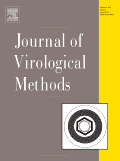
JOURNAL OF VIROLOGICAL METHODS
Bridging gaps in virology through advanced research methods.Journal of Virological Methods, published by Elsevier, is a prominent peer-reviewed journal dedicated to advancing the methodologies employed in virology research. Since its inception in 1980, this esteemed journal has become a vital resource for researchers, professionals, and students focused on the intricate study of viruses and viral-related diseases. With a current ISSN of 0166-0934 and an E-ISSN of 1879-0984, this journal strives to present innovative techniques and tools that enhance our understanding of virology. Designed for a global audience, it operates in a rigorous academic environment, as reflected by its 2023 Scopus ranking of #40 in the Virology category and its Q3 quartile placement. The journal is committed to fostering open dialogue and collaboration within the scientific community, ultimately contributing to the development of novel strategies and interventions against viral infections. By offering comprehensive insights into virological methodologies, the Journal of Virological Methods continuously serves as a cornerstone for those dedicated to exploring the complexities of viral research.
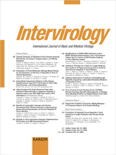
INTERVIROLOGY
Uncovering breakthroughs in virology and infectious diseases.INTERVIROLOGY is a leading academic journal dedicated to advancing the field of virology and infectious diseases, published by KARGER. With a commendable history since its inception in 1973, the journal is currently poised to explore innovative virological research through to 2024. INTERVIROLOGY is indexed with the ISSN 0300-5526 and E-ISSN 1423-0100, reflecting its commitment to maintaining high scholarly standards. The journal is categorized within the Q3 quartile for both Infectious Diseases and Virology as of 2023, demonstrating its relevance and contribution to the academic community. With Scopus rankings placing it as #130 in Infectious Diseases and #41 in Virology, INTERVIROLOGY serves as an essential resource for researchers, professionals, and students seeking cutting-edge insights and discoveries in virology. While it currently operates under a subscription model, its rigorous peer-review process ensures a high quality of published content, making it a cornerstone for those dedicated to understanding and combating viral diseases.

Virology Journal
Driving knowledge forward in the fight against viral diseases.Virology Journal, published by BMC, stands as a prominent open-access platform since 2004, dedicated to advancing the field of virology and infectious diseases. With its E-ISSN: 1743-422X, this journal is based in the United Kingdom and strives to disseminate high-quality research that enhances our understanding of viral pathogens and their interactions with hosts. Recognized with a Q1 classification in the category of Infectious Diseases and a Q2 in Virology for 2023, Virology Journal holds significant standing in the academic community, ranking #82/344 in Medicine - Infectious Diseases and #26/80 in Immunology and Microbiology - Virology. Its commitment to open access ensures that cutting-edge research is freely available to researchers, professionals, and students worldwide, fostering collaboration and innovation in the fight against viral diseases. The journal aims to publish original research articles, reviews, and commentaries that will stimulate discourse and spark new ideas within the virology community.

REVIEWS IN MEDICAL VIROLOGY
Catalyzing Research in Antiviral TherapeuticsREVIEWS IN MEDICAL VIROLOGY is a premier academic journal published by Wiley, dedicated to advancing the field of virology and infectious diseases. Established in 1991, this journal has gained a reputable standing, holding a Q1 ranking in both Infectious Diseases and Virology as of 2023, with impressive Scopus rankings placing it at #17 out of 344 in the realm of Medicine - Infectious Diseases, and #8 out of 80 in Immunology and Microbiology - Virology. This reflects its substantial impact factor and contribution to ongoing research and scholarship. While it is not an Open Access publication, REVIEWS IN MEDICAL VIROLOGY offers vital insights and comprehensive reviews that cater to a diverse audience including researchers, healthcare professionals, and students pursuing knowledge in medical virology. The journal serves as a vital resource for understanding the complexities of viral pathogens and the evolving landscape of antiviral therapeutics, making it an essential read for those poised at the forefront of infectious disease research.
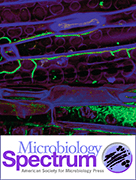
Microbiology Spectrum
Bridging disciplines in the realm of microbiological studies.Microbiology Spectrum is a prominent peer-reviewed journal published by the American Society for Microbiology, dedicated to advancing the field of microbiology through the dissemination of high-quality research. Since its inception in 2013 and continuing until 2024, the journal has established a strong presence in key domains such as microbiology, immunology, cell biology, and ecology, achieving impressive quartile rankings including Q1 in Infectious Diseases and Q1 in Immunology and Microbiology as of 2023. With an emphasis on open access to its scholarly content, Microbiology Spectrum aims to foster collaboration and knowledge sharing among researchers, professionals, and students alike. The journal's scope encompasses a diverse range of topics pertinent to the field, making it an essential resource for anyone involved in microbiological research and its applications. Researchers looking to publish their findings in a respected journal will find Microbiology Spectrum's robust impact factor and Scopus rankings serve as testament to its significance and influence within the academic community.

Food and Environmental Virology
Exploring the Nexus of Virology, Food Safety, and Environmental HealthFood and Environmental Virology is a distinguished journal published by SPRINGER, focusing on the intersection of virology, food science, and environmental health. With its ISSN 1867-0334 and E-ISSN 1867-0342, this journal stands out for its contributions to the understanding of viral pathogens affecting food safety and environmental sustainability. Operating from its esteemed location in New York, USA, the journal has made significant strides since its inception in 2009, with a converged publication period extending to 2024. It currently holds a commendable position within various categories, ranking Q3 in Epidemiology and Virology and Q2 in both Food Science and Health, Toxicology and Mutagenesis, indicating its crucial role in informing both research and policy in these fields. With impressive Scopus rankings—such as 82nd out of 389 in Food Science and 38th out of 148 in Epidemiology—Food and Environmental Virology continues to be a vital resource for researchers, professionals, and students committed to advancing knowledge and practices around food safety and public health. While it operates under a subscription model, the rigorous peer-review process ensures that only high-quality research is published, maintaining the journal’s integrity and relevance in the scientific community.
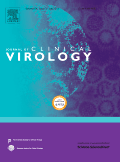
JOURNAL OF CLINICAL VIROLOGY
Advancing the Frontiers of Viral ResearchJournal of Clinical Virology, published by Elsevier, stands at the forefront of virology research, focusing on the clinical implications of viral diseases. With an impressive impact factor representative of its Q1 categorization in both Infectious Diseases and Virology, this journal is essential for researchers and healthcare professionals aiming to keep pace with evolving knowledge and treatments in virology. Since its inception in 1998, it has provided a vital platform for the dissemination of significant breakthroughs, now continuing through to 2024. The journal boasts competitive Scopus ranks, placing it in the 95th percentile for Infectious Diseases and the 91st percentile for Virology. Scholars can benefit from its selective Open Access options, promoting widespread access to cutting-edge research. With an ever-increasing demand for innovative solutions to viral infections, Journal of Clinical Virology remains dedicated to fostering advancements in the field, making it a key resource for anyone invested in virology and infectious disease management.

ARCHIVES OF VIROLOGY
Fostering innovation in the understanding of viruses.Archives of Virology is a prestigious academic journal dedicated to the field of virology, published by Springer Wien. Established in 1975, this journal has been a crucial platform for disseminating innovative research findings and advancements in the understanding of viral diseases and their impact on human health. It holds a notable position in the academic landscape, with a 2023 impact factor placing it in Q2 within the field of Medicine (miscellaneous) and Q3 in Virology. Its Scopus ranking within the Virology category further underscores its relevance, with a notable percentile of 45th. Although it does not provide Open Access options, the journal's rigorous peer-review process ensures the highest quality of published work, making it an essential resource for researchers, professionals, and students aiming to stay updated in the rapidly evolving field of virology. For those committed to advancing their understanding of viruses and viral diseases, Archives of Virology is a vital scholarly resource.